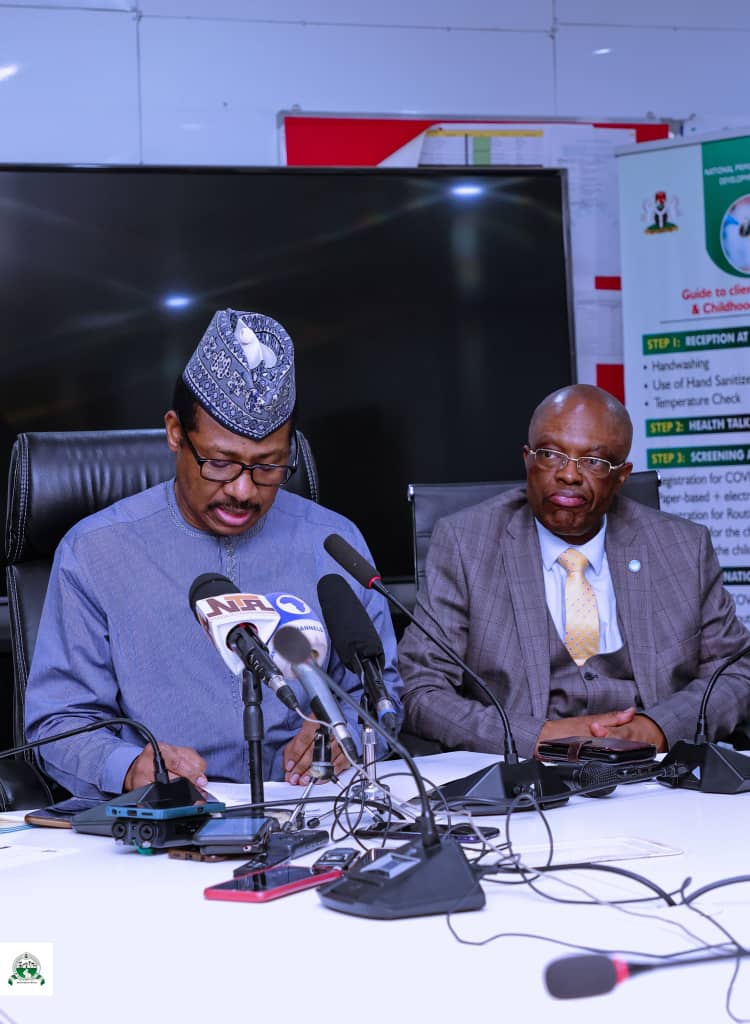
Stresses need to address human resource for health gaps in PHCs
Only 463 representing 1.8 percent out of 25,843 Primary Health Care Facilities in the country have the minimum number of required Skilled Birth Attendants (SBA) which is 4 per facility.
To this end, the federal government has stressed the need to address the human resource for health gaps in the public health centres as 80% of the incidence of maternal and child deaths in Nigeria occur at the community levels, largely due to the lack of services of skilled health workers in the PHC facilities.
Executive Director, of the National Primary Healthcare Development Agency (NPHCDA), Dr Faisal Shuaib who disclosed this at the official launch of Community -Based Health Research Innovative Training and Services Programme (“CRISP) yesterday in Abuja, said that availability of skilled health workers in our PHC facilities is critical to curbing maternal, perinatal, neonatal morbidity and mortality.
He noted that apart from the gross inadequacy of manpower , there is the problem of unequal distribution of available SBAs in the PHC facilities and to address this major challenge, the agency has come up with an innovation called Community-based Health Research, Innovative-training and Services Program (CRISP), which we will be launched on Monday the 22nd of May 2023.
He explained that CRISP intervention specifically focuses on increasing, retaining and improving the quality, adequacy, competency, and distribution of a committed multidisciplinary primary health care workforce that includes facility outreach and community-based health workers supported through effective management supervision and appropriate compensation.
According to him, CRISP aims to leverage the rural posting of Resident Doctors from teaching hospitals to boost and guarantee the quality of care at the PHC level through their active involvement in primary health service delivery. This is targeted at improving Reproductive, Maternal, Newborn, Child and Adolescent Health, amongst other health services within the benefiting communities.
Shuaib stated that the initiative us a partnership between the Teaching Hospitals, Federal Medical Centres, National Primary Health Care Development Agency, State Primary Health Care Boards, Local Government Health Authorities and the communities to support primary health care development aimed towards addressing the issues affecting primary health care delivery in Nigeria, particularly the issue of inadequate human resource for health.
He said, “Unfortunately, the primary health care centres are the most unattractive to our skilled health workers who prefer to be stationed at urban secondary and tertiary health facilities. While this fact has kept PHC delivery on a setback, we have scientific evidence, showing that the interventions provided by skilled health workers, namely doctors, nurses, midwives, or CHEWs trained on MLSS can reduce maternal and new-born mortality in low and middle-income countries, including Nigeria”.
“” Consequently, our CRISP initiative will operate at scale involving Teaching Hospitals and Federal Medical Centres across the country. This means that the CRISP resident doctors from the engaged teaching hospitals and federal medical centres would be deployed to the primary health care facilities to support service provision and on-the-job capacity building of the PHC health workers. CRISP is targeted for implementation across the 36 states of the Federation plus the FCT in a phased manner. As a multi-stakeholder investment, CRISP will be funded by the Government of Nigeria with support from development partners, philanthropists, among others.



